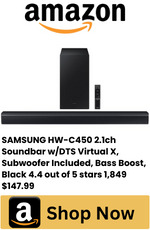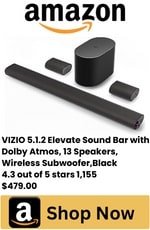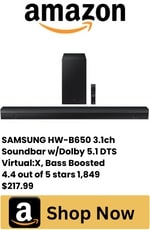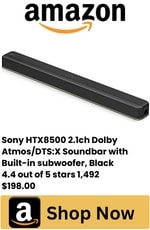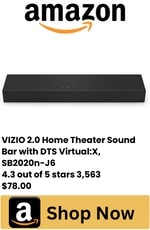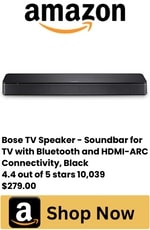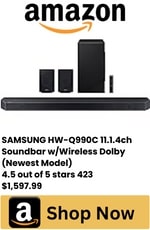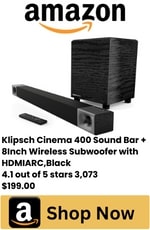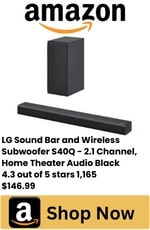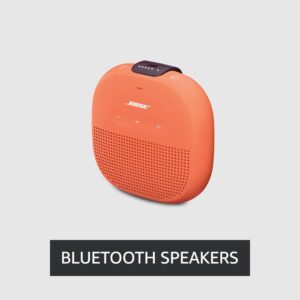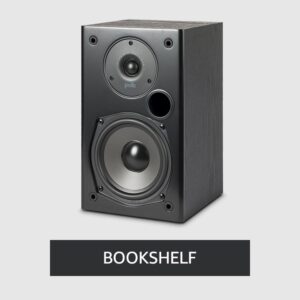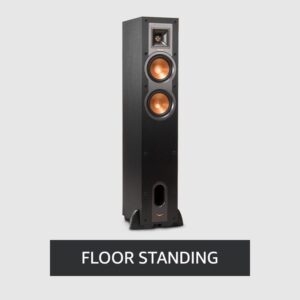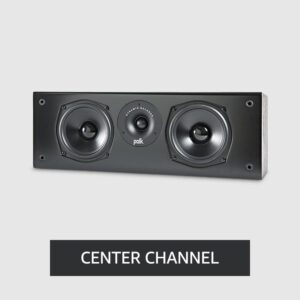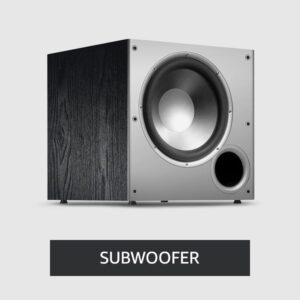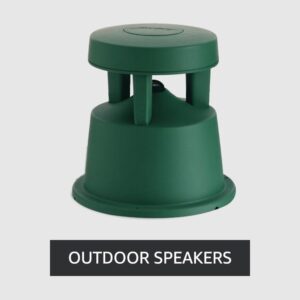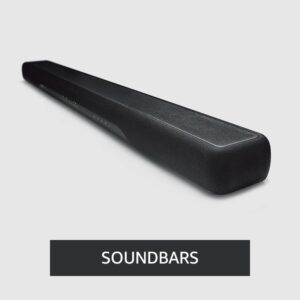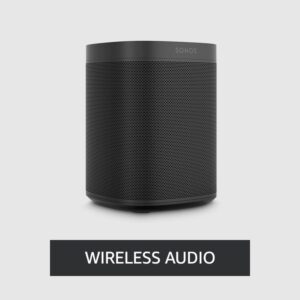Sonos Play 5 Gen 1 vs Gen 2: A Comprehensive Comparison
Choosing the perfect speaker is pivotal for a superior listening experience. The Play 5 Gen 1 and Gen 2 comparison is important to the Sonos lineup. This guide delves into a comprehensive analysis of both models, providing an in-depth understanding of their distinctions and aiding your decision-making process.
Important Note: It’s worth noting that the Sonos Play 5 Gen 1 is no longer in production, though it remains accessible on platforms like Amazon. Given its inception in 2005, it’s prudent to lean towards the technologically advanced Sonos Play 5 Gen 2.
Premium Pick
Sonos Play: 5 Gen 1
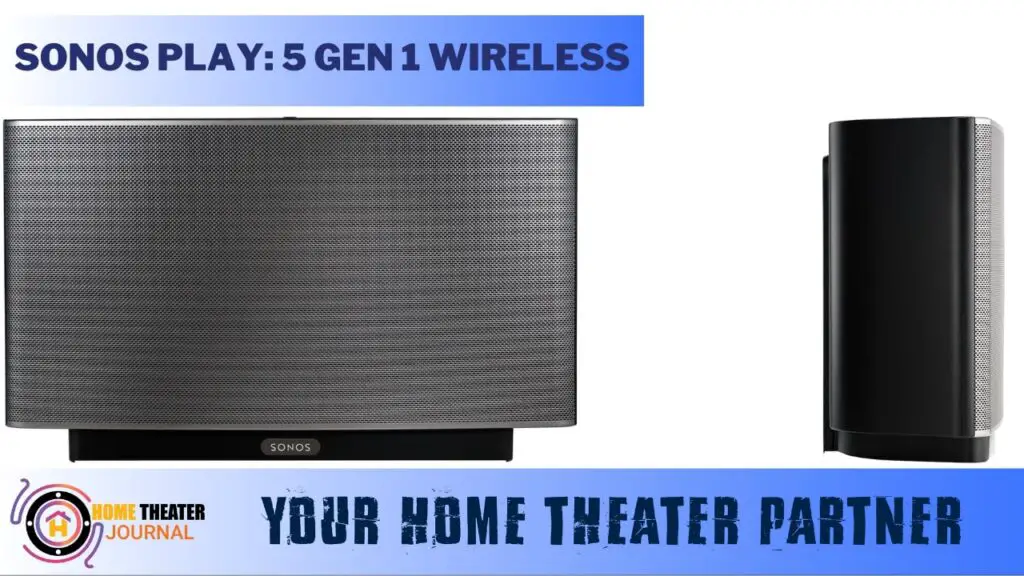
Solid bass performance
cost-effective option
wireless connectivity
Diamond Pick
Sonos Play: 5 Gen 2
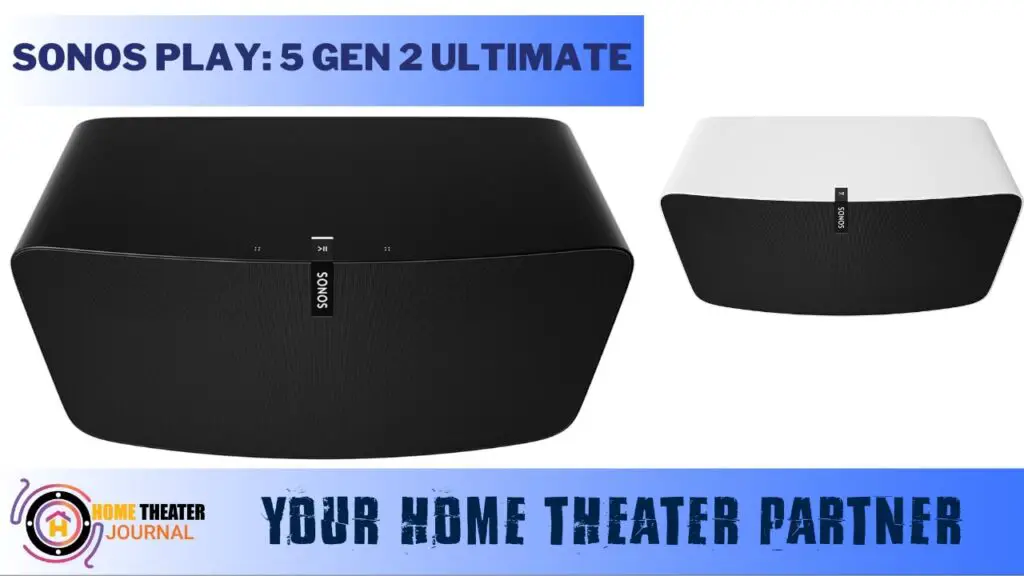
Enhanced audio quality
multiroom capability
modern connectivity options
Comparison Table Of Sonos Play 5 Gen 1 vs Sonos Play Gen 2
| Parameters of Comparison | Sonos Play 5 Gen 1 | Sonos Play 5 Gen 2 |
| Release Year | 2005 (Discontinued) | 2015 |
| Sound Performance | Good bass performance and sound output | More drivers, high-quality, crystal-clear audio |
| Connectivity | Bluetooth, WiFi, 3.5mm aux-in jack | WiFi, Apple AirPlay 2, Alexa voice control |
| Controls | Physical buttons, smartphone app support | Touch controls, voice commands via Siri remote, built-in speakerphone |
| Design | Square box with glossy finish | Slightly triangular, matte finish |
| Size and Weight | Smaller and lighter (8 pounds) | Larger and heavier (14 pounds) |
| Price | Less expensive, lacks advanced features | More expensive, additional drivers and features |
Sonos Play: 5 Gen 1 Wireless Speaker for Streaming Music (Black)

While the Gen 1 model boasts a powerful sound output and commendable bass performance, its outdated software and limited connectivity options make it less appealing than the Gen 2. Given its discontinuation, opting for the more advanced Gen 2 for an elevated listening journey is advisable.
Feature And Specifications:
- Solid bass performance, wireless connectivity, and affordable option.
- Release Year: 2005
- Connectivity: Bluetooth, WiFi, Ethernet
- Sound: 5 amplifiers, 2 mid-woofers, 2 tweeters, 1 woofer
- Control: Physical buttons, smartphone app support
- Design: Square box with glossy finish
- Size and Weight: 4.8×14.4×8.5 inches, 8 pounds
- Price: Budget-friendly
Pros
Solid bass performance
cost-effective option
wireless connectivity
Cons
Discontinued by the company
Sonos Play: 5 Gen 2 Ultimate Wireless Smart Speaker – Black

With its advanced firmware, exceptional audio quality, and smart features, Sonos Play 5 Gen 2 is the preferred choice. Its compatibility, wireless connectivity, and voice control options make it a cutting-edge addition to any audio setup. The investment in Gen 2 promises an immersive auditory experience and aligns with modern technological demands.
Feature and Specifications:
- Enhanced audio quality, advanced features, multiroom capability, modern connectivity options, and sleek design.
- Release Year: 2015
- Connectivity: WiFi, Apple AirPlay 2, Alexa voice control
- Sound: 6 amplifiers, 3 mid-woofers, 3 tweeters, 0 woofers
- Control: Touch controls, voice commands via Siri remote, built-in speakerphone
- Design: Slightly triangular, matte finish
- Size and Weight: 14.3x8x6 inches, 14 pounds
- Price: Higher-end option
Pros
Enhanced audio quality
multiroom capability
modern connectivity options
Sleek design
Cons
Higher price
No Bluetooth connectivity
Sonos Play 5 Gen 1 vs Gen 2: Major Differences
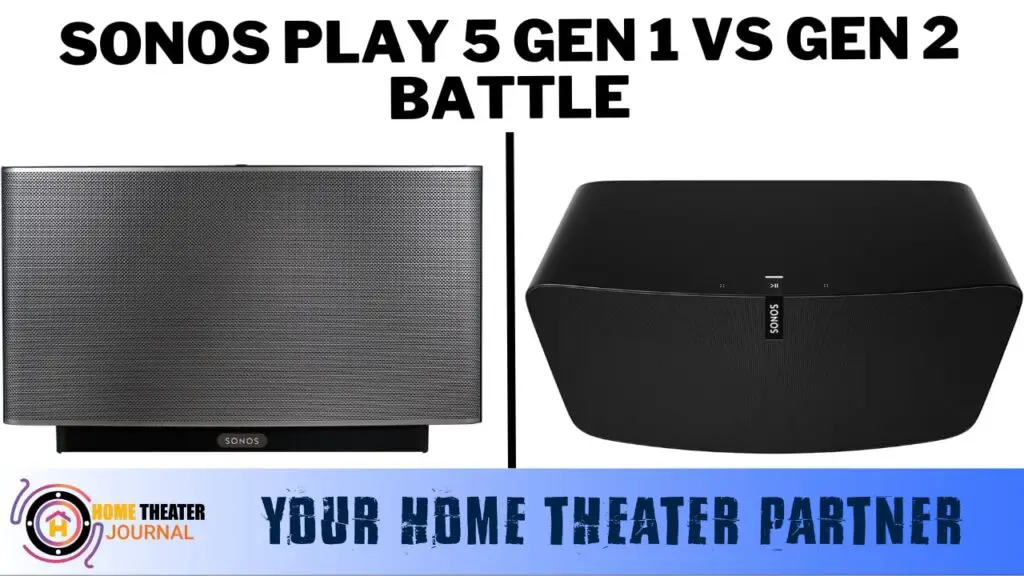
The principal variance between these models revolves around their software architecture. While some features bear semblance, a comprehensive comparison reveals disparities in size, design, audio quality, and control options.
Release:
Sonos Play 5 Gen 1, a pioneer from 2005, stands as an entry-level Sonos speaker. Its connectivity encompasses Bluetooth and Ethernet but lacks speakerphone and multiroom functionality. Conversely, Sonos Play 5 Gen 2 debuted in 2015, a decade after its precursor. Armed with updated firmware, it boasts backward compatibility and multiroom capabilities. Moreover, it excels in delivering high-fidelity digital audio and eliminates the need for an external amplifier.
Sound Quality:
Gen 2 triumphs in audio quality, attributed to its adeptness in handling low latency, frequent firmware updates, and robust driver assembly. With 6 amplifiers, 3 mid-woofers, and 3 tweeters, Gen 2 thrives in delivering pristine and immersive audio. Gen 1, housing 5 amplifiers, 2 mid-woofers, 2 tweeters, and 1 woofer, imparts powerful sound output, particularly excelling in bass performance.
Style and Look:
Gen 1, presented in a square, glossy form, exudes elegance, while Gen 2’s slightly triangular shape and matte finish lend a professional aura. Both iterations are available in black and white, catering to diverse aesthetic preferences.
Controlling Methods:
Sonos Play 5 Gen 2 enhances control with touch controls and compatibility with Siri remote for voice commands and speakerphone use. Gen 1 relies on physical buttons and smartphone app support, positioned more as a computer speaker, whereas Gen 2 embraces a more intelligent approach.
Connectivity Options:
Gen 1 boasts Bluetooth connectivity, whereas Gen 2 opts for WiFi and Apple AirPlay 2. Both models embrace Alexa voice control. Gen 1 provides a 3.5mm aux-in jack and Ethernet port, enabling physical connections. Gen 2 ensures wireless connection via WiFi and leverages Apple AirPlay 2 for seamless streaming, cementing its place in the modern digital landscape.
Size and Weight:
Sonos Play 5 Gen 1 spans 4.8×14.4×8.5 inches, offering portability at 8 pounds. In contrast, Gen 2’s dimensions of 14.3x8x6 inches and weight of 14 pounds confer a more extensive and weightier profile. Both models facilitate versatile placement, supporting various orientations and even the option of mounting on a ball stand.
Price:
Sonos Play 5 Gen 2 commands a higher price point, justified by its additional drivers, enhanced audio quality, and advanced control and connectivity features.
SONOS PLAY 5 GEN 1 VS 2 COMPARISON CHART
| Feature | Sonos Play:5 (Gen 1) | Sonos Play:5 (Gen 2) |
|---|---|---|
| Audio Quality | Excellent sound quality | Enhanced sound quality |
| Amplifiers | 5 Class-D amplifiers | 6 Class-D amplifiers |
| Drivers | 5 drivers: 2 tweeters, 2 | 6 drivers: 3 mid-woofers, 3 |
| mid-woofers, 1 subwoofer | tweeters, 1 subwoofer | |
| Trueplay Tuning | No | Yes |
| Line-In | Yes | No |
| Audio Line-Out | Yes | No |
| Ethernet Port | Yes | No |
| Wireless Connectivity | Dual-band Wi-Fi (2.4GHz and 5 GHz) | Dual-band Wi-Fi (2.4GHz and 5 GHz) |
| Apple AirPlay 2 Support | No | Yes |
| Trueplay Tuning | No | Yes |
| Dimensions (H x W x D) | 4.8×14.4×8.5 inches | 14.3 x 8 x 6 inches |
| Weight | 8 Pound | 14 Pound |
| Supported Streaming Services | Wide range of streaming | Wide range of streaming |
| services via Sonos app | services via Sonos app | |
| Multiroom Audio | Yes, with other Sonos speakers | Yes, with other Sonos speakers |
| Stereo Pairing | Yes | Yes |
| Voice Assistance Compatibility | None | Amazon Alexa, Google Assistant |
| Wall Mountable | Yes | Yes |
Final Thoughts
In conclusion, the comprehensive evaluation underscores the superiority of the Sonos Play 5 Gen 2 over Gen 1. The technologically advanced features, superior audio quality, and enhanced connectivity of Gen 2 solidify its position as the preferred choice. Given Gen 1’s discontinuation and outdated firmware, investing in Gen 2 promises an immersive and unparalleled auditory experience.
FAQs
Are Bose speakers better than Sonos?
Both Bose and Sonos are renowned brands for speakers, each with its strengths. While Bose is known for its exceptional surround sound capabilities, Sonos specialises in enhancing speech clarity. For instance, the Bose Smart Soundbar 700 offers a well-balanced sound profile and less distortion at higher volumes than the Sonos Playbar.
What makes Sonos speakers so popular?
The popularity of Sonos speakers can be attributed to their exceptional sound quality and broad compatibility with a wide range of streaming services. From popular platforms like Pandora and Spotify to Tidal, SiriusXM, and more, Sonos ensures a seamless and enjoyable listening experience across multiple apps and services.
How many Sonos speakers can be connected?
You can establish a Sonosnet, a dedicated wireless network within your home theater, to connect up to 32 Sonos speakers to a primary or master speaker. This secure wireless connection, Sonosnet, facilitates synchronized audio playback throughout your space.
What’s the suitable number of Sonos speakers for an average room?
Generally, a single Sonos speaker, such as the Sonos One, is well-suited for an average-sized room, providing satisfying audio quality. However, if your room is more prominent, opting for a stereo pair with two speakers, like two Sonos One speakers, can significantly enhance the audio experience and deliver louder sound output.
Is it possible to power off a Sonos speaker?
Unlike traditional devices, Sonos speakers are designed to remain on most of the time. When inactive, they automatically transition to a lower power mode, conserving energy. This approach eliminates the need for frequent power on/off cycles, ensuring speakers are always ready to deliver high-quality audio without inconveniences.

Author: Baqarrasheed
I know all about home theater items! I have been doing this for more than three years now. I am good with things like sound systems, TVs, projectors, and all that cool entertainment gear. I like to help folks by testing and talking about these gadgets on Hometheaterjournal. I want to make sure everyone can create an awesome entertainment setup at home without any confusion.
I write the creative content for HometheaterJournal.



